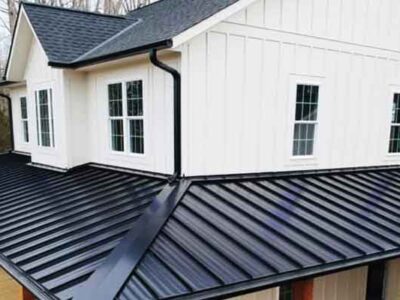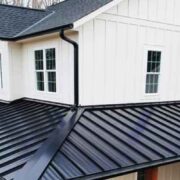
Mold is a big problem that can cause many health problems. It can also damage your property. It is important to get the problem under control before it gets out of hand. That’s where mold remediation Cary professionals come in. They can inspect places you might not think to look, such as behind walls.
1. Reduce Risk of Health Issues
When mold isn’t treated, it can cause a wide range of health issues. These include allergies, runny nose, eye irritation, irritated skin, coughing and difficulty breathing. In some cases, it has been known to exacerbate asthma in those who already have it. Depending on the type of mold, it can also trigger a variety of other symptoms in people who are immune-compromised.
To help prevent these problems, it is important to identify and fix any issues that could lead to mold growth in the first place. This may involve waterproofing basements, cleaning carpets or installing dehumidifiers in damp rooms. It is also important to clean any surfaces that have been affected by mold growth within 48 hours and then dry them quickly with a detergent solution or bleach (1 cup of bleach to 1 gallon of water). It is also a good idea to test the air quality in the area after cleaning to ensure that all the spores have been killed.
2. Save Money
Mold growth is directly related to water damage, and correcting the problem helps prevent future infestations. Mold inspectors look in places you might not think to check, including behind walls, under plumbing fixtures, inside flooring or ceiling tubes and under appliances. Mold that is visible and easily accessible typically costs less to remove than hidden or hard-to-reach growths. It’s also more cost-effective to address problems in their early stages, before they grow out of control and become more difficult (and expensive) to treat.
Mold inspections are a smart investment for anyone who suspects they have a mold problem in their home or business. A musty smell, discoloration of drywall and other surfaces, and allergy symptoms are all signs that you need to take action. Left untreated, mold can destroy the building materials and lead to health issues for occupants. Some types of mold produce allergens and irritants that cause skin irritation, wheezing, coughing, runny nose and nasal congestion for people with allergies or asthma.
3. Reduce Damage
Mold has been linked to a number of health problems including allergies, itchy eyes and nose, wheezing, bronchitis and more. It can also cause damage to building materials and furnishings and may lead to structural problems in older homes. It’s important to get a professional inspection and take preventative action in order to avoid any serious health problems as well as costly repairs down the road.
Mold remediation is usually done in two stages – mold removal and mold sanitization. Mold removal involves cleaning the impacted area and fixing the moisture problem. This is usually done with a scrub brush, hot water and household detergent or a bleach solution of no more than 1 cup of bleach in one gallon of water.
Moisture management and prevention is the most important step in preventing mold growth. Keep humidity levels below 50%, run exhaust fans when cooking or cleaning and add insulation in areas prone to condensation (i.e., windows, piping, exterior walls and roof).
4. Reduce Stress
Mold spores are airborne and can travel far and wide in search of a warm, damp environment to grow. Upon finding that environment, they release airborne cells or seeds (similar to spores on mushrooms) and grow into new colonies. These colonies continue searching for the same conditions, releasing more and more spores along the way.
The goal of preventative mold remediation is to stop these new colonies from developing by cleaning and sanitizing surfaces, removing porous materials like carpeting or upholstery, and identifying and correcting the source of moisture. This could be fixing a leaking pipe, or locating the source of excess humidity in a home.
When tackling mold cleanup on your own, be sure to use proper cleansers and protective gear. Wear gloves, a mask, and long sleeves to reduce exposure to spores while cleaning. Also, always open windows and doors to allow for fresh air to circulate throughout the building. Use fans to help dry surfaces and limit the spread of spores.











